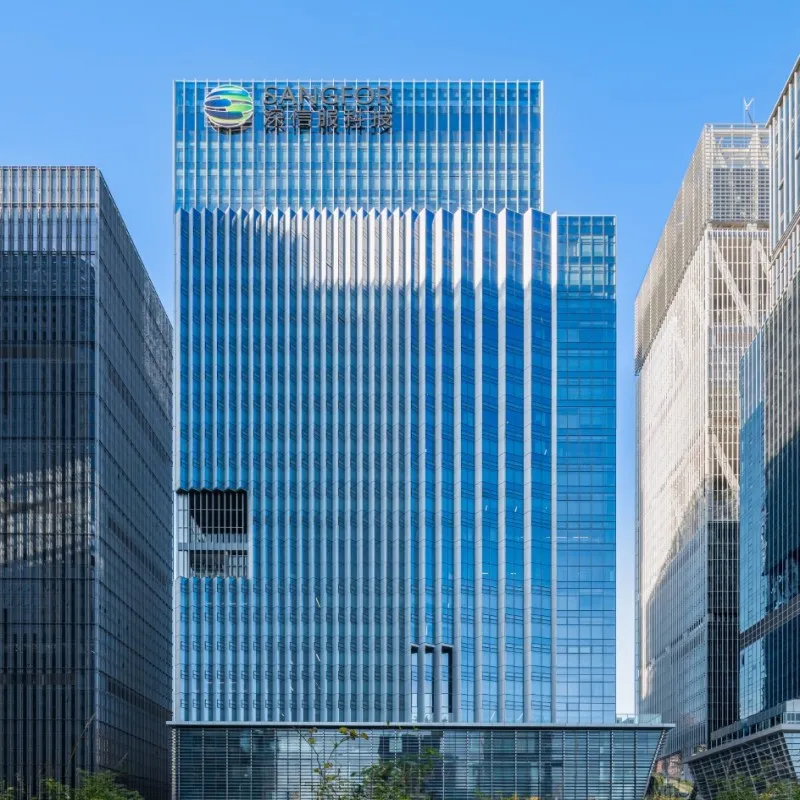About EFU Life
In 1990, the government of Pakistan reopened the life insurance business to private sector organizations. EFU Life Assurance Ltd. started operations in November 1992 as the first private sector life insurance company. In early 1993, EFU Life commenced its Group Life Insurance Business and, by March 1994, the company began writing its individual life insurance business. The concept of unit linking was first introduced in Pakistan by EFU Life and today the life business is primarily unit linked.
Today, EFU Life Assurance Ltd. is Pakistan’s leading private-sector life and health insurer and family Takaful operator. It offers comprehensive financial planning solutions, including savings, protection, and health coverage, tailored to individual needs and affordability.
EFU Life has introduced several industry firsts in Pakistan, such as unit-linked products, critical illness coverage, education planning products, and pension plans. The company’s digital platforms, such as the EFU Life PlanIT App, offer clients easy access to policy information, claims, and updates, ensuring a seamless experience.

Night View of EFU Life Building. Source: https://en.wikipedia.org/wiki/EFU_Group
Sangfor HCI Case Study
EFU Life Challenges
The customer has a variety of critical workloads running at their location including many self-built in-house and Third-Party Applications, Databases, ERP, and Domain Controllers. As well as Mail Servers, File Servers, HRMS, and Web Servers among other things, which were previously running on Traditional 3-tier architecture using VMware as Hypervisor with HPE 3-PAR Storages.
Based on the above information, the customer had the following challenges:
- The customer was using old hardware which led to consistent performance issues. The maintenance of the hardware components was costly and still left the recurring risk of compromised faulty elements.
- 3-tier legacy architecture is overly complex. The administration of the system can be difficult as the customer has to manage every tier in the data center separately based on intricate management consoles which often require high-level expertise.
- The organization required increased availability and higher input/output operations per second (IO/IOPS) for client portals, Point of sale (POS), and other mission-critical VMs. They were using SAN storage configured to a VMware server – which was not agile enough for capacity extension.
- The webservers of EFU Life required professional web application firewall protection.
- Large silos of hardware in the data center including servers, switches, storage, SAN switches, and firewalls increase the operational costs of the data center, and a low yearly budget required the reuse of the current server with the new solution.
- Hardware Lock-In while scaling up or scaling out the infrastructure was also an issue - especially with regard to storage, as the customer would have to go to the specific Original Equipment Manufacturers (OEM) from whom they had purchased the products.
- The customer was using third-party backup and replication products for the sake of data backup and off-site replication.
- The use of different OEMs resulted in difficulties finding solutions efficiently and effectively as most manufacturers would rather pass the blame than try and resolve the issues at hand.
- The organization planned to add a Secure Sockets Layer VPN (SSL VPN) in the upcoming year, to provide 2000 new users with an SSL concurrent connection without adding hardware.
Sangfor’s HCI Solution for EFU Life
Sangfor’s Hyper-Converged Infrastructure (HCI) integrated with their current hardware in two-node clusters with virtual storage and network - upgrading hard disks with solid-state drives and deploying an advanced virtual firewall with a web application firewall.
Sangfor provides integrated one-window operations through Sangfor’s Cloud Platform (SCP) in terms of multi-site management by consolidating compute, storage, network, security, backup, and DR operations within a single window.
Sangfor provides Software-Defined Data Center (SDDC) architecture and by being a completely hardware-agnostic system, provides the customer leverage to use any x86 platform hardware concerning future scaling. This mitigates the hardware lock-in problem that the customer faced with the 3-tier legacy architecture platform.
Sangfor provides built-in disaster recovery and backup solutions with no need to purchase or renew any third-party solution or deploy any separate appliance.
Sangfor provides the customer with a single enterprise-grade license model for all its components - including Hypervisor, Storage Virtualization, and Network Virtualization – among others. This includes all the enterprise-grade features such as DRS, Hotadd, Tiering, Caching, VXLAN, Micro-segmentation, NFV Integration, and CDP to name a few, without any hidden feature locking or extra charges.
Customer Benefits After Deployment of Sangfor Solution
- Sangfor HCI allows the client to reuse their current highly performing hardware - reducing the initial investment cost.
- The unique clustering design and SSD tiering of virtual storage provided high availability and high performance for the insurance company.
- Sangfor’s Network Function Virtualization (NFV) feature provided a virtual firewall without the need for extra hardware.
- Sangfor HCI includes a one-stop disaster recovery function. It helps provide DR with a second-level Recovery Point Objective (RPO) and a minute-level Recovery Time Objective (RTO), which can be activated as needed.
- Sangfor provides single-vendor local support. By opting for Sangfor SDDC, all the support and warranty services are provided by Sangfor itself. This helps the client avoid the tedious task of dealing with multiple OEMs - mitigating the time-consuming and redundant conflict resolution EFU Life previously faced by relying on support from a single vendor for every tier.
- Sangfor leverages virtualization technology for every tier and converges compute, storage, network, network security, backup, and replication in a single-box solution. This provides effective utilization of resources and data center consolidation. This drastically reduces the data center’s footprint by reducing the hardware components needed.
EFU Life now operates smoothly with the support of Sangfor’s elevated computing infrastructure. Sangfor provides enhanced cyber security and cloud computing options for organizations. Visit www.sangfor.com for more details.
Watch the interview video to learn more.
Interview with EFU Life Assurance Ltd Pakistan | Sangfor HCI&VDI
Sangfor aStor Case Study
About EFU Life Assurance
Established in 1992, EFU Life Assurance Ltd. is Pakistan’s leading private-sector life and health insurer and family Takaful operator. It offers comprehensive financial planning solutions, including savings, protection, and health coverage, tailored to individual needs and affordability.
EFU Life has introduced several industry firsts in Pakistan, such as unit-linked products, critical illness coverage, education planning products, and pension plans. The company’s digital platforms, such as the EFU Life PlanIT App, offer clients easy access to policy information, claims, and updates, ensuring a seamless experience.
Customer Challenges
EFU Life operates a range of critical workloads across various proprietary and third-party applications. These include ERP, HRMS, databases, domain controllers, and email, file, and web servers—all hosted on 48 nodes of Sangfor HCI. Over the past two years, this setup has had zero downtime.
However, they experienced several challenges related to its HPE 3PAR storage system, which they used for backup, including:
- Support and Maintenance Limitations: Due to HPE’s limited direct support resources, EFU Life regularly faced difficulties obtaining timely support and replacing faulty parts.
- High Maintenance Costs and Reliability Issues: Despite significant investment in maintenance, the company continued to experience reliability issues with 3PAR storage and keeping it operational, impacting uptime and availability.
- Inefficient Storage Utilization: The company manages various types of backup data, including archival data, production data, and backup copies. However, the existing storage setup struggled to handle these varied backup needs efficiently.
- Asset Depreciation Concerns: The company was concerned about the depreciation of their storage assets. They sought a solution with a longer lifecycle to avoid the need for major reinvestments every 5-7 years.
Sangfor Solution
To address these challenges, EFU Life deployed Sangfor aStor at their primary site, with three nodes providing a total usable storage capacity of 195TB. This solution meets the company’s requirements for backup storage needs while offering the advantage of Sangfor’s local in-country support.
Solution Benefits
- Unified Operations and Maintenance: Sangfor aStor provides a unified platform that centralizes management of resource allocation, authorization, capacity expansion, hardware replacement, and troubleshooting, significantly reducing operational complexity and overhead.
- Simplified Volume Management: The integration of SCP (Sangfor Cloud Platform) for volume mapping streamlines storage management, making it easier and faster for system administrators to handle storage volumes.
- Unified Storage for Diverse Data Needs: Sangfor aStor offers a unified storage platform that integrates block, file, and object storage to satisfy EFU Life’s diverse backup data types. Its tiered storage capability automatically optimizes data placement, such as high-performance storage for production data and lower-cost, high-capacity storage for archival data, optimizing resource use while meeting performance demands.
- Flexible Software Licensing for TCO Reduction: Sangfor aStor offers its software as a perpetual component, separate from the hardware. This allows EFU Life to replace only the hardware as it ages without needing to re-license the software, meeting depreciation requirements and reducing the total cost of ownership (TCO).
- Comprehensive SLA Coverage and Vendor Consolidation: The entire infrastructure is now covered by Sangfor’s service-level agreement (SLA), so EFU Life no longer needs to manage multiple vendors or local partners. Sangfor assumes responsibility for all hardware support and spare parts, eliminating the need for the customer to maintain their own local spare inventory.
We have experienced exceptional service levels from Sangfor’s on-field and on-ground support staff. Initially, the staff was non-localized, but the good thing they have done is develop local talent and a local support structure, which has immensely helped us achieve the service uptime that we offer to our clients, internal and external.
Sohaib Shams, Head of Technology at EFU Life Assurance
Conclusion
With Sangfor aStor, EFU Life has effectively addressed its previous storage challenges, enhancing storage efficiency, reliability, and operational simplicity. With Sangfor’s unified storage platform, EFU Life now benefits from optimized data management across diverse backup types, extended asset life, and reduced TCO. Additionally, comprehensive SLA coverage and local support have streamlined vendor management, providing the company with a scalable and cost-effective storage solution that aligns with their long-term business needs.





